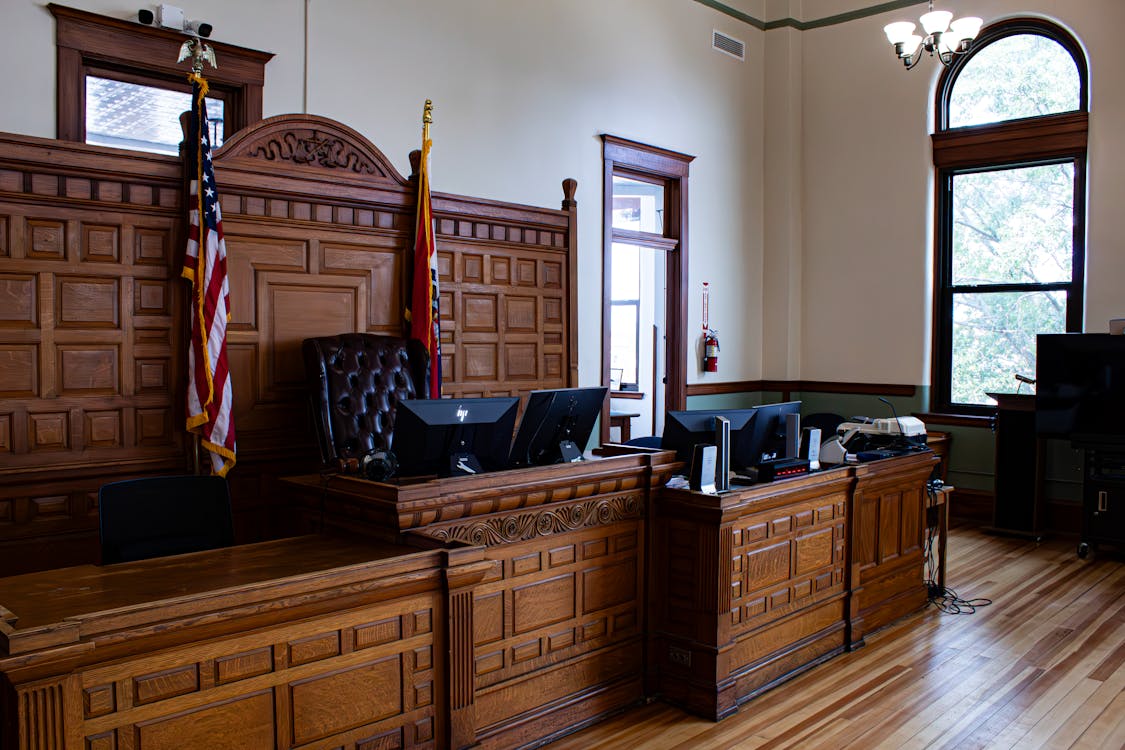
(Photo : Zachary Caraway)
Courtroom (Representational Image)
- The U.S. Supreme Court declined to hear Uber and Lyft's challenge to California's lawsuits regarding drivers' status as contractors.
- The decision could set a precedent for future cases involving gig economy workers' classification.
- Uber and Lyft have faced legal setbacks in California, highlighting increasing scrutiny on gig economy companies.
- The decision allows California to pursue claims that the companies owe money to drivers misclassified as independent contractors.
In a significant legal development, the U.S. Supreme Court declined to hear a challenge by Uber and Lyft to lawsuits by the state of California. The lawsuits, brought on behalf of drivers who signed agreements to keep legal disputes with the ride-hailing companies out of court, revolve around the drivers' status as contractors.
The Supreme Court's decision allows the Democratic-led state's attorney general and labor commissioner to pursue claims that Uber and Lyft owe money to drivers who were misclassified as independent contractors rather than employees.
Uber and Lyft have argued that federal law bars states from suing on behalf of anyone who signed agreements to bring legal disputes in private arbitration rather than court. This includes more than 60 million U.S. workers and virtually any consumer who joins a subscription service, accepts a company's terms of service, or registers a product.
However, the Supreme Court's decision could potentially set a precedent for future cases involving gig economy workers and their classification as independent contractors or employees.
Theane Evangelis, a lawyer for Uber, maintained that the California court's ruling was incorrect and said the Supreme Court could decide the issue in a future case. This statement suggests that the legal battle over the classification of gig economy workers is far from over and could potentially reach the Supreme Court again in the future.
California's Legal Battle Against Uber and Lyft
California filed separate lawsuits against the companies in 2020. A state appeals court in 2023 ruled against the companies in their challenge to the lawsuits. The California Supreme Court subsequently declined to hear their appeals. This series of legal setbacks for Uber and Lyft underscores the increasing scrutiny and regulatory pressure faced by gig economy companies.
California is one of several Democratic-led states that have accused Uber and Lyft of depriving drivers of minimum wage, overtime pay, reimbursements for expenses, and other protections by labeling them as independent contractors. Most federal and state wage laws apply only to employees, making it much cheaper for companies to hire contractors.
But this practice has come under increasing criticism and legal challenge, with critics arguing that it deprives workers of essential rights and protections.
Implications for Gig Economy Companies
Uber, Lyft, and other app-based services have denied that they are employers of gig workers who may benefit from the flexibility of contracting. The industry has advocated for state ballot measures allowing companies to treat workers as contractors in exchange for providing certain benefits. California's top state court in July upheld such a measure backed by Uber and Lyft and overwhelmingly approved by voters in the state in 2020.
Uber and Lyft in June agreed to adopt a $32.50 hourly minimum pay standard for Massachusetts drivers and pay $175 million to settle a lawsuit by the Democratic-led state's attorney general alleging they improperly treated drivers as independent contractors. This settlement suggests that the companies are willing to make concessions and adjustments in response to legal and regulatory pressure.
No wonder, Uber and Lyft also have been sued by thousands of U.S. drivers who have said they should have been treated as employees. But few of those cases have yielded definitive rulings and many of them have been sent to arbitration, since most of the drivers for the companies sign arbitration agreements. This highlights the ongoing legal uncertainty and complexity surrounding the classification of gig economy workers.









